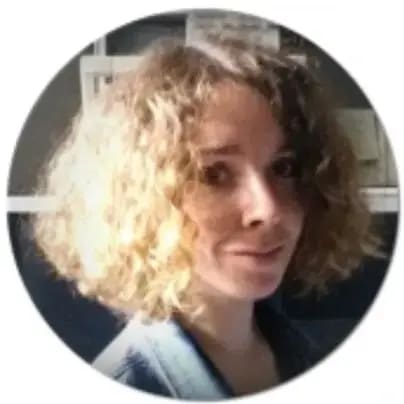Biography
Liubov is researcher with background in mathematics, theoretical physics. She did her Phd in Humboldt University of Berlin, worked in Universities of France, Germany, the Netherlands, Spain, Uruguay.
At Bell labs Liubov is focusing her work on around several topics: robustness of networks, processes on random networks, time-series analysis and embeddings. She is also interested in studying how collective intelligence helps us to build tools for understanding responsible AI. Using stochastic processes and random networks she also works now in survivability processes theory applied in the context of studying time-series processes. She works on development of embeddings applied to various datasets from innovation in science to evolution of data of users.
2019-current Researcher, Bell labs, Paris, FRANCE. Subject: spreading processes, mobility networks, big data analysis, time-series analysis, causality
2018–2019 Post-doc, Centre de Recherche Interdisciplinaire, Paris, FRANCE.
Subject: spreading processes in networks, mobility analysis project
2016–2018 Post-doc, Ecole Polytechnique, Laboratoire de Physique de la Matiere Condensee, Palaiseau, FRANCE, group of Pr.Denis Grebenkov. "Anomalous diffusion properties, intracellular transport, random walks, disordered systems".
2012–2016 PhD in Theoretical Physics, Humboldt Universität, Berlin, Potsdam Institute fur Klimafolgenforschung, Potsdam, GERMANY, Marie-Curie Research Fellowship Program, Project LINC, supervisor: Pr.Jürgen Kurths (Physics Department, HU, Transdisciplinary Concepts and Methods Department, PIK).
2013-2014 Research collaborator, Institute of Complex Systems (IFISC), Palma de Mallorca, Spain, group of Pr.Hernandez-Garcia. LINC European project.
2014 Research collaborator, Utrecht University, the Netherlands, group of Pr.Henk Dijkstra, LINC project.
2014 Research collaborator, University of Montevideo, Uruguay, group of Pr.Marcelo Barreiro, LINC project.
2006–2012 Master degree in Mathematics, Lomonosov Moscow State University, Moscow, RUSSIA, supervisor: Prof.Helen Bunina Subject: "Authomorphisms of the semigroup of non-negative invertible matrices"
Some of my publications (from the most cited ones):
Unified functional network and nonlinear time series analysis for complex systems science: The pyunicorn package JF Donges, J Heitzig, B Beronov, M Wiedermann, J Runge, QY Feng, L. Tupikina et al. Chaos: An Interdisciplinary Journal of Nonlinear Science 25 (11), 113101 752015
Correlation networks from flows. The case of forced and time-dependent advection-diffusion dynamics L Tupikina, N Molkenthin, C López, E Hernández-García, N Marwan, et al. PLoS One 11 (4), e0153703
252016
Characterizing the evolution of climate networks L Tupikina, K Rehfeld, N Molkenthin, V Stolbova, N Marwan, J Kurths Nonlinear Processes in Geophysics 21 (3), 705-711 212014
Heterogeneous continuous-time random walks DS Grebenkov, L Tupikina Physical Review E 97 (1), 012148
172018
Are forum networks social networks? A methodological perspective O Poquet, L Tupikina, M Santolini Proceedings of the Tenth International Conference on Learning Analytics …14 2020
Characterizing flows by complex network methods RV Donner, M Lindner, L Tupikina, N Molkenthin A mathematical modeling approach from nonlinear dynamics to complex systems …132019
Epidemic extinction in networks: insights from the 12 110 smallest graphs P Holme, L Tupikina New Journal of Physics 20 (11), 113042 122018
On the influence of spatial sampling on climate networks N Molkenthin, K Rehfeld, V Stolbova, L Tupikina, J Kurths Nonlinear Processes in Geophysics 21 (3), 651-657 112014
Morphological organization of point-to-point transport in complex networks
MY Kang, G Berthelot, L Tupikina, C Nicolaides, JF Colonna, B Sapoval, ...
Scientific Reports 9 (1), 1-7 42019
Structural and temporal heterogeneities on networks
L Tupikina, DS Grebenkov Applied Network Science 4 (1), 1-18 22019
Characterizing flows by complex network methods
Authors Reik V Donner, Michael Lindner, Liubov Tupikina, Nora Molkenthin Publication date 2019 Book A mathematical modeling approach from nonlinear dynamics to complex systems Pages 197-226 Publisher Springer, Cham Description During the last years, complex network approaches have demonstrated their great potentials as versatile tools for exploring the structural as well as dynamical properties of complex systems from a variety of different fields. Among others, recent successful examples include their application to studying flow systems in both, abstract mathematical and real-world geophysical contexts. In this context, two recent developments are particularly notable: on the one hand, correlation-based functional network approaches allow inferring statistical interrelationships, for example between macroscopic regions of the Earth’s climate system, which are hidden to more classical statistical analysis techniques. On the other hand, Lagrangian flow networks provide a new tool to identify dynamically relevant structures in atmosphere, ocean or, more generally, the phase space of complex systems.
Member of WWCS complex systems community. Member of Complex systems review. Member of Frontiers of physics journal.
On this page







